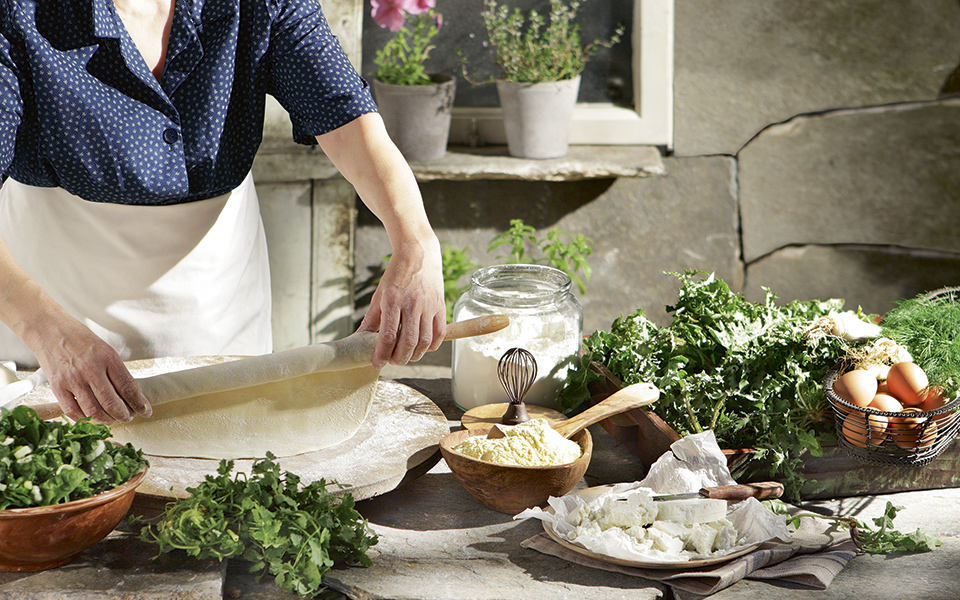It was warm and the color of seduction itself, pure red. When my Aunt Mary cut it open with her small, dull, serrated knife, on the stone slab of a table right outside her kitchen door, goats gently bleating nearby, I could smell its perfect scent, light as the breeze. My first real tomato. I was reluctant to eat it but, goaded on, I did, at first a little frightened by the thin juice and sticky seeds on my lips and by its thick leathery skin and fleshy pulp. I was forever transformed. Ikaria. Summer of ’72. My love affair with this country and its cuisine began then and there, unbeknownst to my 12-year-old psyche. That was the summer I discovered food. Real food. Cut from vines, picked from trees, plucked off straw in coops, snapped from stalks. Comforting food placidly swimming in olive oil, punctuated with sharp oregano and crunchy salt. That was the summer I discovered the Greek diet although, back then, the term was not yet in use. Goats were everywhere, and we ate them.
It was, however, years later before I dared milk one; to this day I am awed by the process, such a yin and yang. How, from this cranky mammal’s soft, grey wrinkled teats, using just the right kind of pressure, which takes time to hone, you get that hard stream of warm white milk. Soft-hard, feminine-masculine, ancient-modern. This is Greece eternal, my life lesson in contrasts and the untold but palpable balance that is in evidence all over this country’s stunning natural landscape. More than four decades later, battered by a crisis of Herculean proportions, beaten but breathing, Greece and its food still seduce. The land is giving and many people have returned to it to revive their lives and livelihoods. Many, of course, have also left in droves for distant shores, moving in free markets to work but just as likely fettered by what in Greek is called nostos, a yearning to return home, the root of our English word nostalgia and, tellingly, the root of the Greek word for delicious. Delicious home. That is always how I think of Greece – the vantage point of my perspective is forever the Greek table, and all that happens around it.
“Greece’s sinuous history has played itself out on her table. The cuisine is a rich amalgam of ancient, Byzantine, Balkan, Turkish, English and other influences, all fused into the terrain of the country itself.”
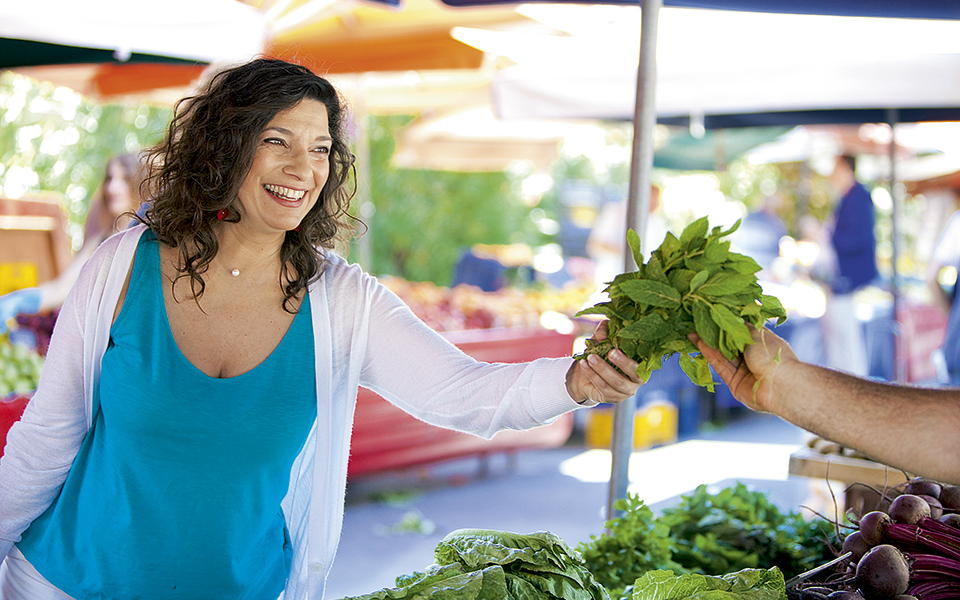
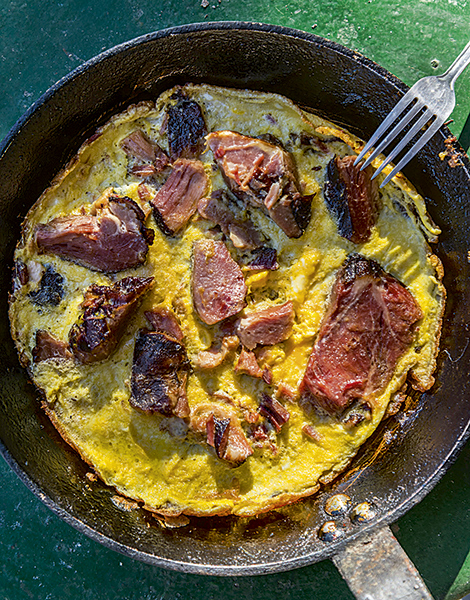
© Perikles Merakos
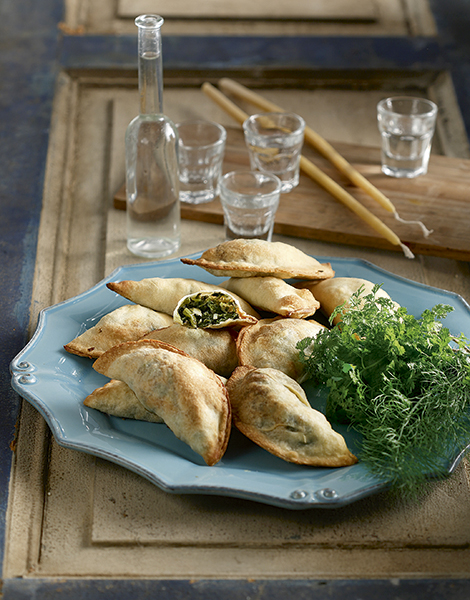
© George Drakopoulos
“Greece’s sinuous history has played itself out on her table. The cuisine is a rich amalgam of ancient, Byzantine, Balkan, Turkish, English and other influences, all fused into the terrain of the country itself.”
REGIONAL CUISINES
The more one delves into the origins of Greek food and lore, the more one becomes entangled in the web of this country’s long, complex history. Greece has always been a crossroads between East and West. It has endured conquests and has absorbed whole populations from neighboring lands. Much of its history is one of migrations and resettlements. Most migrations, of course, were forced upon the Greeks, whether by outside threats, from pirates, earthquakes, Ottoman Turks and others, or by economic hardship, a recurring catalyst and one we are seeing today.
Greece’s sinuous history has played itself out on her table. The cuisine is a rich amalgam of ancient, Byzantine, Balkan, Turkish, English and other influences, all fused into the terrain of the country itself. Geography and climate, more than anything else, have dictated what people in different regions of Greece cultivated and consumed throughout history. For the most part, even the modern Greek table overflows with ancient foods; the same basic ingredients have sustained Greeks since prehistoric times.
Among them are the olive and its oil, of course, but there are also grains, such as barley and wheat; pulses, such as lentils, peas, chickpeas and broad beans; wild herbs and greens; game, such as wild birds and rabbits; snails; sesame, honey, nuts, and certain fruits. Goats and sheep have long provided milk, cheese, festive meats, and various household necessities such as wool or the goatskin bags still made on Ikaria, called filaki. Pork, a meat that divides the Mediterranean between Christian and Judeo-Muslim culinary traditions, has always been an important meat in Greece. Indeed, even today on the Aegean islands, the hoirosfagia, or “pig-slaughtering” custom, is alive and well. Taking place around the holidays, the family ritual is reason for a feast, and showcases the skills necessary for butchering the animal so that every last scrap is used.

© Katerina Kampiti
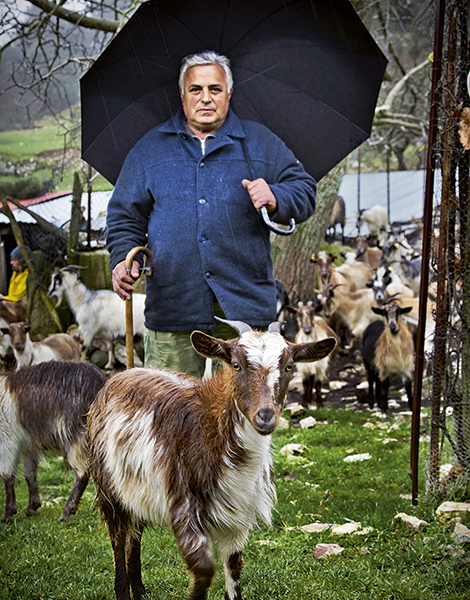
© Perikles Merakos
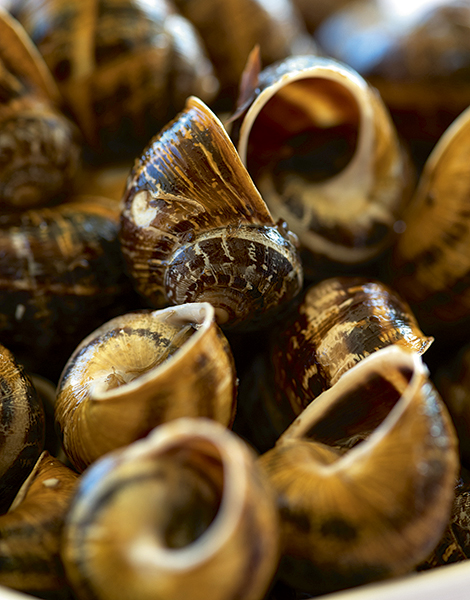
© Perikles Merakos
It has always been my belief that the regional cooking of Greece can be divided into three main “arteries”: mountain cooking (shepherd traditions), island cuisine (born from the thrifty cooking of the Aegean), and the urbane, fragrant cuisines of the Greeks of Asia Minor (as well as of the Italian aristocracy whose historic presence in parts of the Aegean and Ionian left a most aromatic mark on local tables). One could argue that Crete, almost a country unto itself, naturally blessed with a fecund landscape and host over the centuries to Venetian and Turkish invaders as well as to Greeks fleeing Asia Minor, is in a category all its own.
As one moves from one corner of Greece to another, distinct regional cuisines emerge. The Peloponnese, for example, thanks to the copious amount of excellent olive oil that is produced throughout the region, is home to some of the best and simplest one-pot vegetable and bean stews in Greece. Oranges, lemons, and olives flavor the local cuisine. Pork is a local passion, so much so that on weekends all over Messinia one can find roast pork, or gourounopoula, sold even at roadside stands. There are commonalities between the cooking of the Peloponnese and some of the culinary traditions of the Ionian, on the western coast of Greece, but the cooking of the Ionian Islands has also been shaped by hundreds of years of Venetian presence. Some foods have Italian names to this day.
“As one moves from one corner of Greece to another, distinct regional cuisines emerge.”
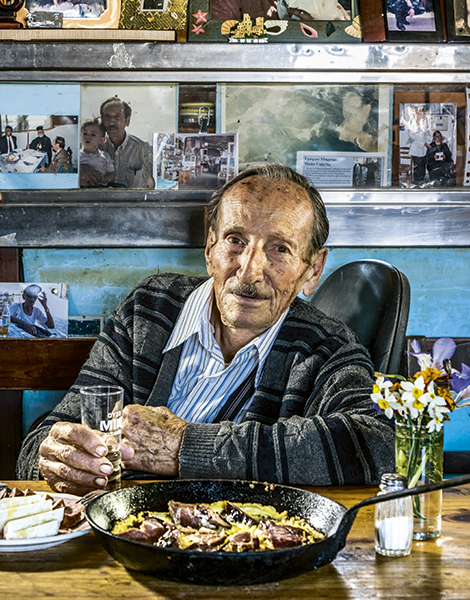
© Perikles Merakos
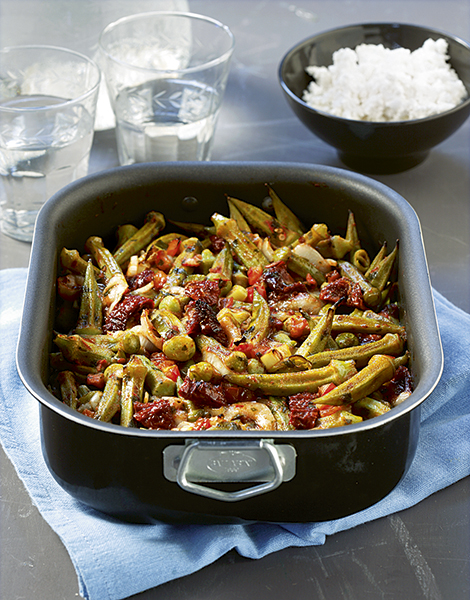
© George Drakopoulos
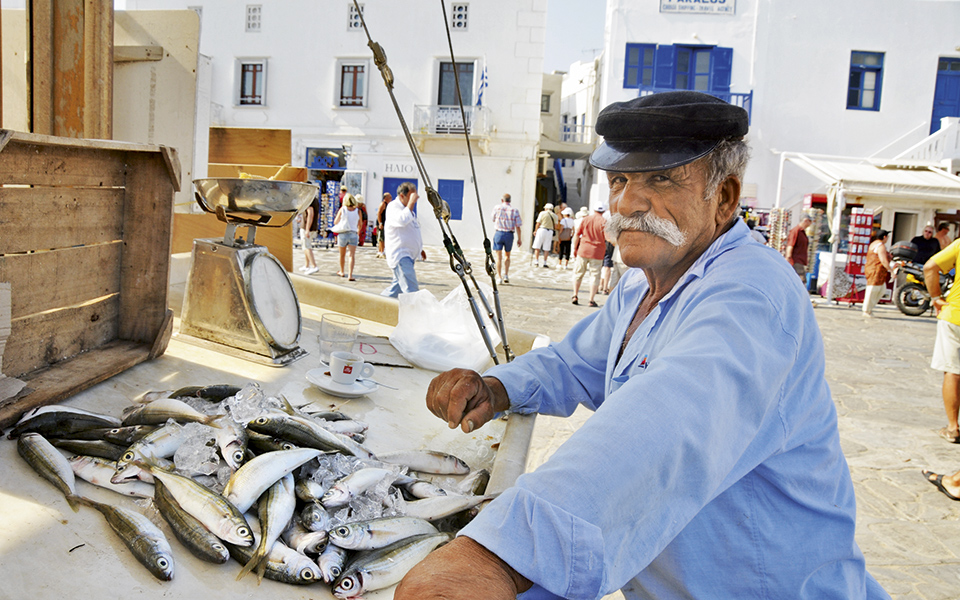
© Evelyn Foskolou
“All of Aegean cuisine culminates in the great traditions of the Cretan table – one of the best examples of a unified, perfect, seasonal and varied Mediterranean cuisine.”
Heading north through Roumeli (central Greece) and Epirus, the land is so imposing, mountainous and dense, that the local cuisine is greatly defined by it. This is shepherds’ domain, where wild greens, meats, dairy and savory pies make up the mainstay of local food traditions. Thessaly, the great plain and wheat belt of Greece, is a kind of bridge for all the cooking traditions of the mainland, combining Macedonian traditions with shepherds’ ways, and both of those with the region’s unique geography of coastline, flat open expanses and lush mountains.
In Macedonia and Thrace to the north, the cooking is spicier than elsewhere in Greece. All manner of peppers define the flavor palette. Cabbage and leeks are the most important vegetables. The kitchen is a reflection of the land, of local and Balkan influences, and of the rich, fragrant foods that Greece’s Asia Minor refugees brought with them en masse in 1922, when hundreds of thousands resettled in the area.
The Aegean is a different story. For the most part, Greek island cooking is sparse and simple, and all of Aegean cuisine culminates in the great traditions of the Cretan table – one of the best examples of a unified, perfect, seasonal and varied Mediterranean cuisine.
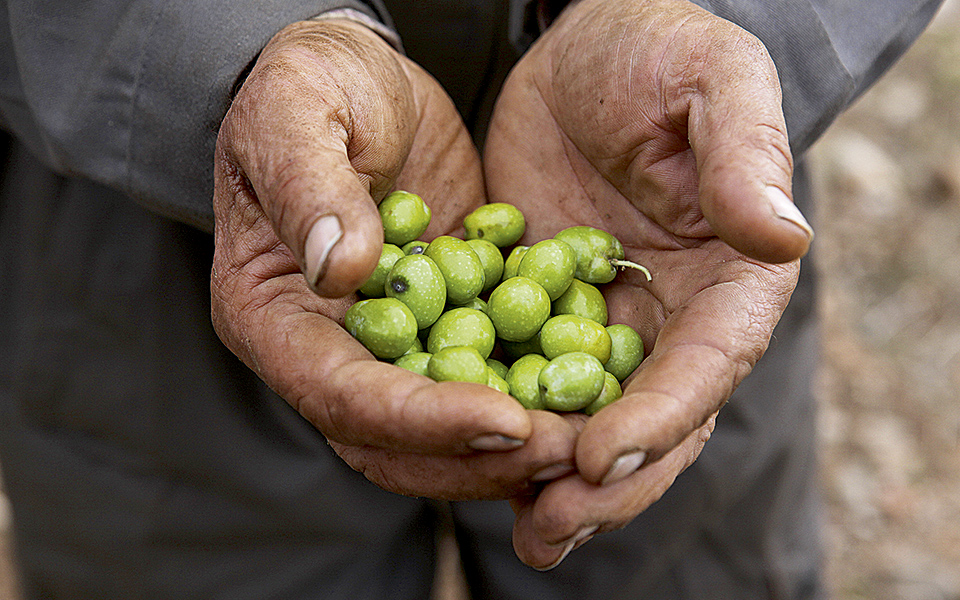
© Katerina Kampiti
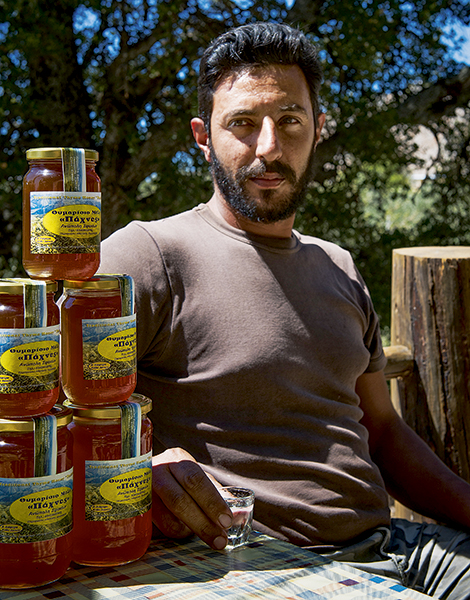
© Perikles Merakos
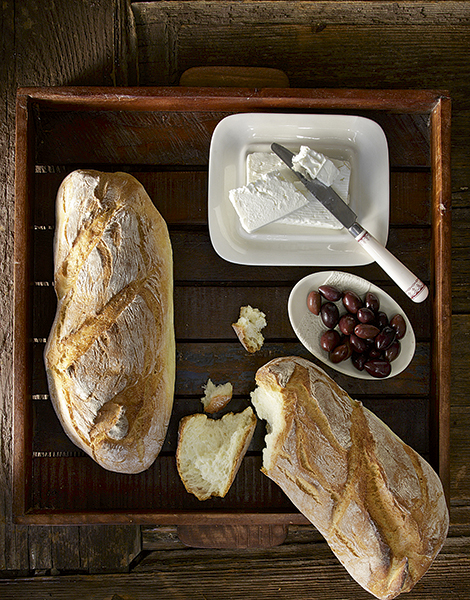
© George Drakopoulos
COMMON THREADS
Regardless of the region, however, connections run deep throughout all of Greek cuisine. To this day, our culinary traditions are living traditions, something reinforced, at least to my mind, every time I visit a laiki (farmers’ market) in my Athens neighborhood. Here, one sees the Mediterranean Diet and the Greek Diet in practice. The markets are a potpourri of all that is in season at any given time of year, and this adherence to seasonality, to the laws of nature, so to speak, is probably the one defining value of all of Greek cooking.
These street markets are a living example of something else as well, equally important and often overlooked: the importance of plant-based foods in the Greek tradition. Long before it became fashionable to think about vegetarianism, Greeks had been practicing a kind of selective vegetarian-based cooking rooted in the fasting traditions of the Greek Orthodox Church. To follow the fast – and many people, including myself, still do – one basically goes off all animal products for almost half the year. It’s the ultimate detox diet, time-tested, healthy and delicious.
“The markets are a potpourri of all that is in season at any given time of year, and this adherence to seasonality, to the laws of nature.”
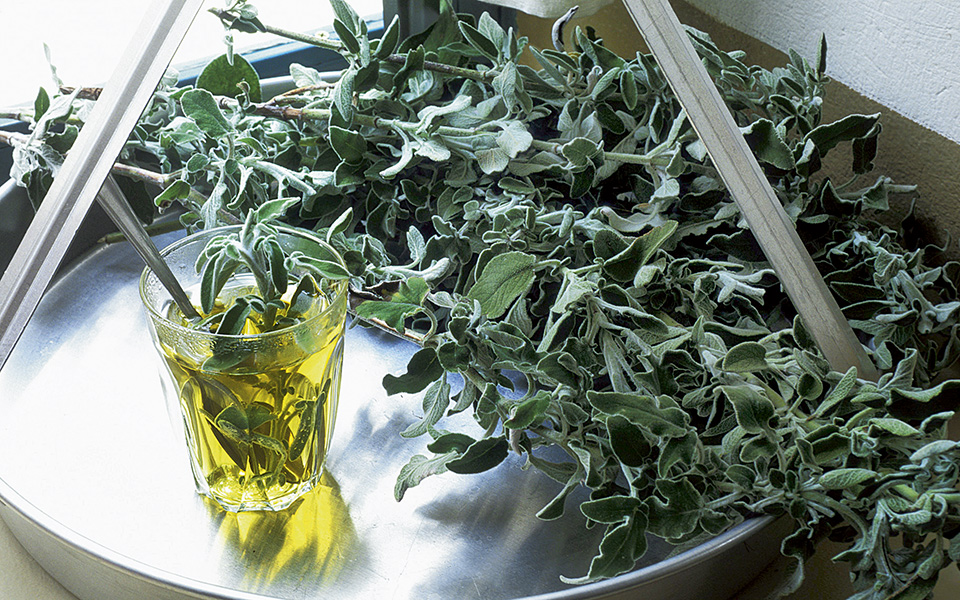
© Perikles Merakos
IKARIA
Plant-based cooking, seemingly anathema to contemporary Greeks, who do, indeed, love their animal protein, is one of the secrets to what just might be the perfect living example of the traditional Mediterranean diet in action, that of the island of Ikaria.
Ikaria was catapulted to fame a few years ago as a Blue Zone, one of a handful of places on the planet where people live an extraordinarily long time. One main factor for this must be their diet, along with a lifestyle that includes strong communal ties and a resistance to the pressures of the clock. For my most recent book, “Ikaria: Lessons on Food, Life and Longevity from the Greek Island Where People Forget to Die”, I talked to many old people on the island (my ancestral home, too) about what they ate growing up. What I discovered was that it wasn’t so much what people ate a generation or two ago, but what they didn’t eat. Food was not nearly as plentiful then as it is now and they didn’t eat very much at all. It was a dearth of food, rather than the types of foods, which seems to have defined their diet.

© Doros Varvekis
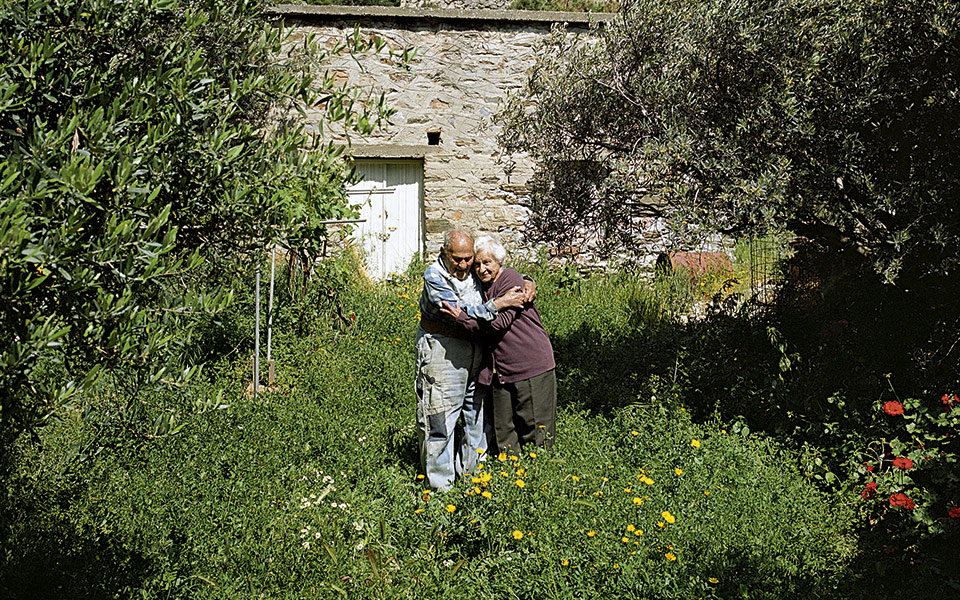
© Pavlos Fysakis
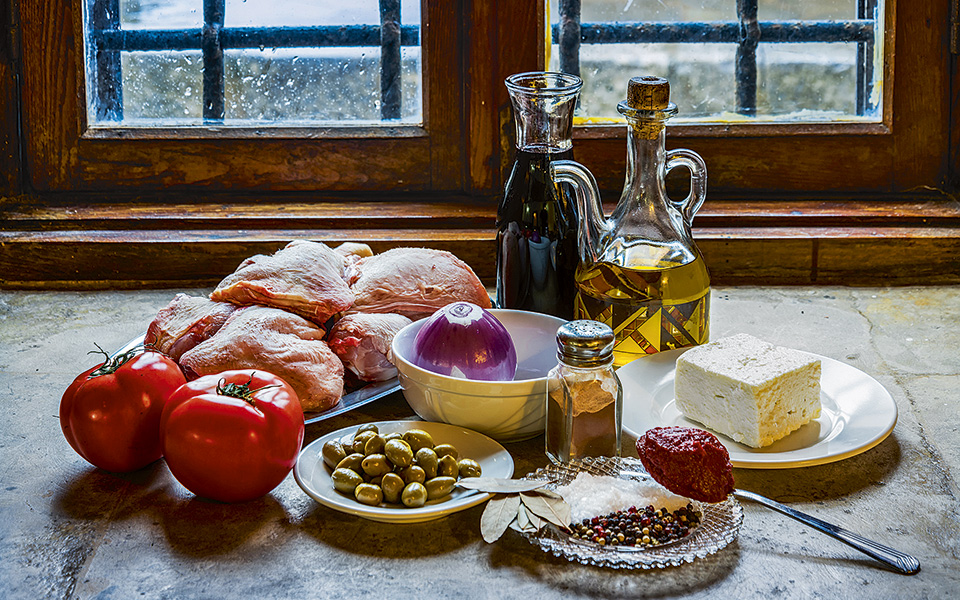
© Dimitris Vlaikos
“Herbs, not only as flavoring agents but also dried for tea, are a major part of the Ikarian diet.”
Equally important, of course, is the quality of food. On Ikaria, and I dare say in many parts of Greece, people consume very little processed food. Most people on the island grow at least some of their own food and many still forage for wild foods, such as seasonal greens, herbs, and mushrooms. Farm animals are either grazed or eat the family leftovers, not a diet of processed animal feed. Olive oil flows in copious amounts (as it does all over Greece, which has the highest per capita consumption in the world). The food people consume is very fresh; it’s packed with nutrients and free of pesticides.
Herbs, not only as flavoring agents but also dried for tea, are a major part of the Ikarian diet. Indeed, the folk pharmacopoeia on the island is alive and well. “Why do you need penicillin when you have sage, garlic and honey?” an 85-year-old friend asked, referencing the cold medicine of yore.
Pulses, whole grains, garden vegetables (fresh in season but also dried – and known as tsifia), foraged wild foods, fish, some game and some meat were the mainstays of the diet. Meat was scarce, so much so that to this day there is a tradition in the villages of Raches called mnimosyno. That’s the word for memorial service in Greek. On Ikaria, it refers to the communal Easter meal to which everyone who can contribute, and anyone who wants to can partake in. It was a way to ensure that even the poorest islanders got a little meat at least once a year.
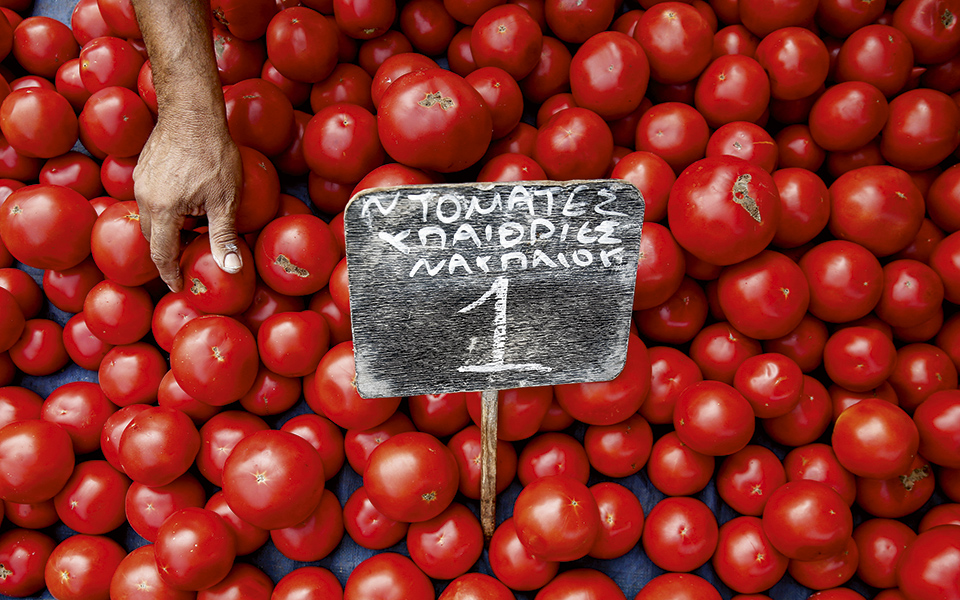
© Getty Images/Ideal Image
Ikaria is still a place where life is simple, and slow. People there have an appreciation for the kinds of things money can’t buy – good company, friends, family, and shared meals. Most people make their own wine and it flows freely, enabling islanders to also live uninhibitedly, loosened up and unstressed. It is a place where the Mediterranean Diet of 50 years ago still flourishes, as does a culture that frowns upon material wealth and its stressful pursuit.
Maybe these long-living islanders are onto something all Greeks knew instinctively a generation or two ago: that eating fresh seasonal food (mostly plants) prepared simply, consumed with wine and shared with friends and family is what a healthy diet is all about. I can still taste that first real tomato, savored more than 40 years ago in what was then one of the most remote places in Europe. It changed my life.
ABOUT THE ATHOUR
DIANE KOCHILAS is a chef and award-winning cookbook author. She is the host of the forthcoming cooking/travel series My Greek Kitchen, airing across the USA on PBS in September 2017. Together with her husband, Vassilis Stenos, she runs the Glorious Greek Kitchen cooking school every spring and summer on their native island, Ikaria.

